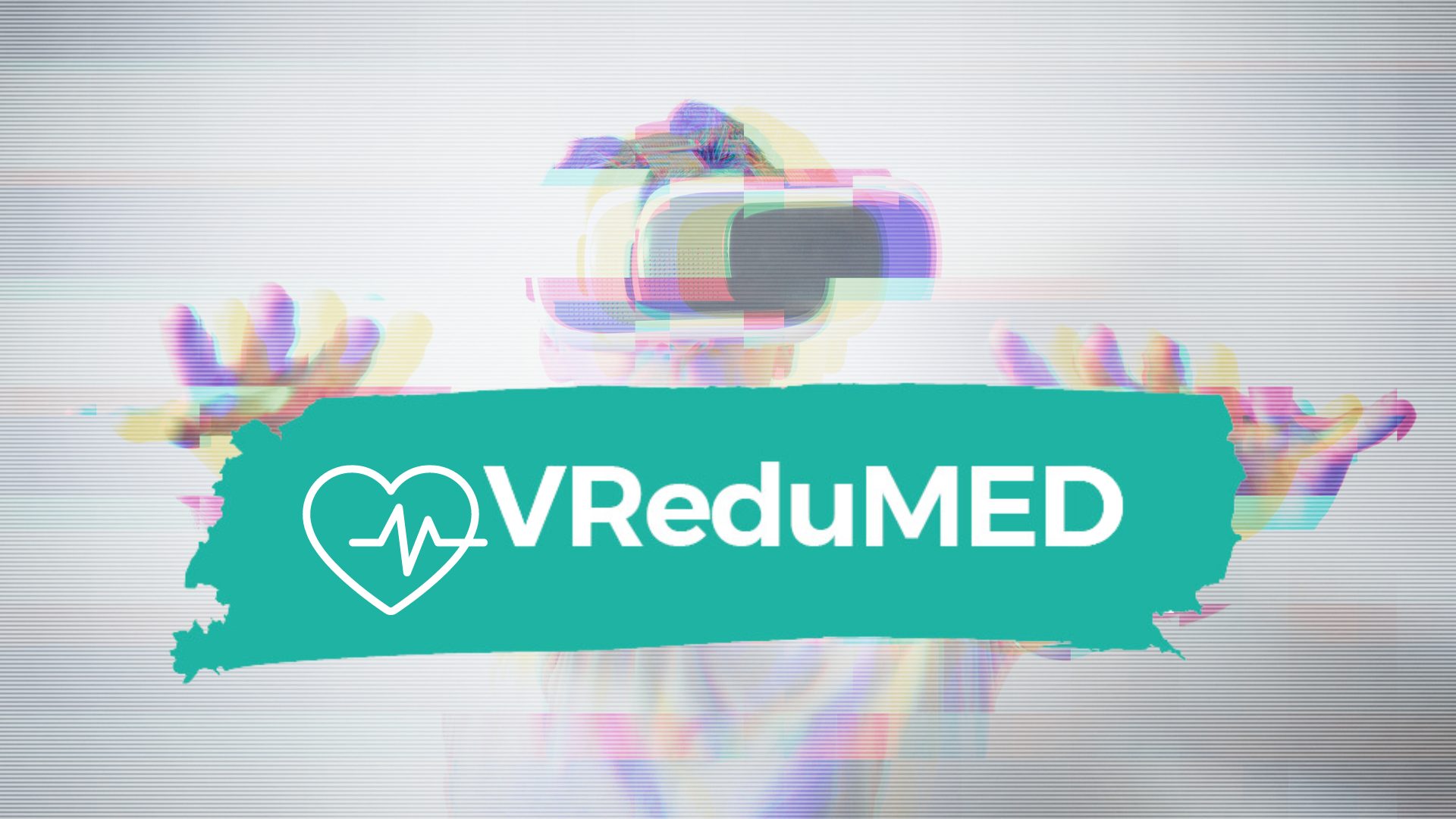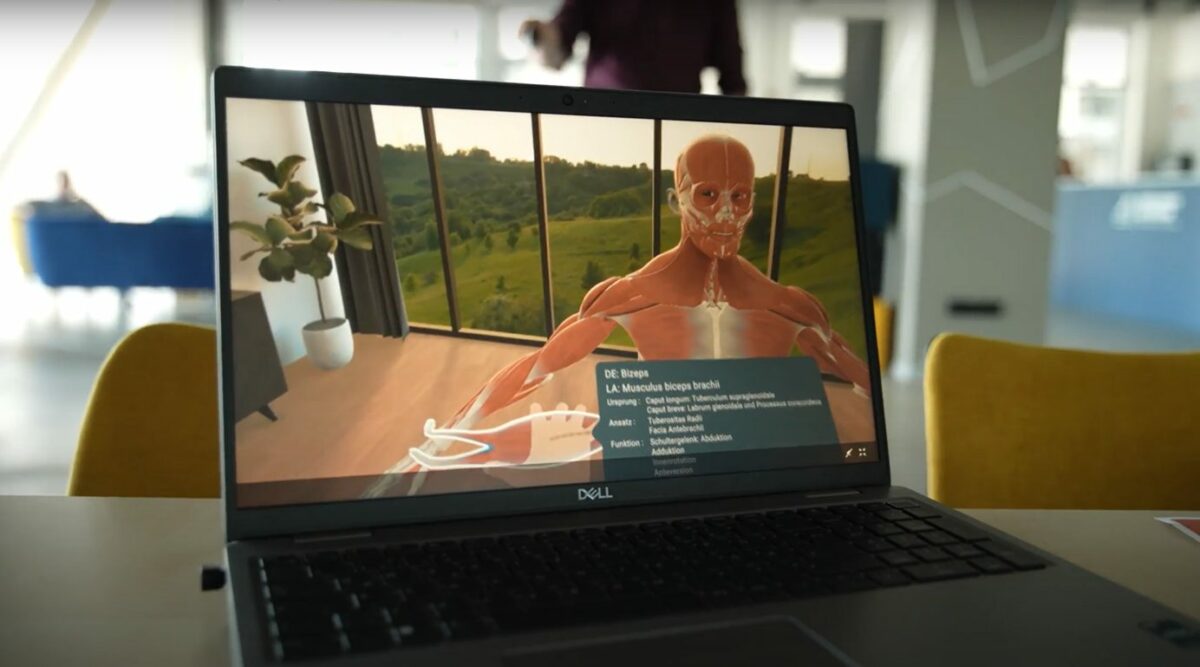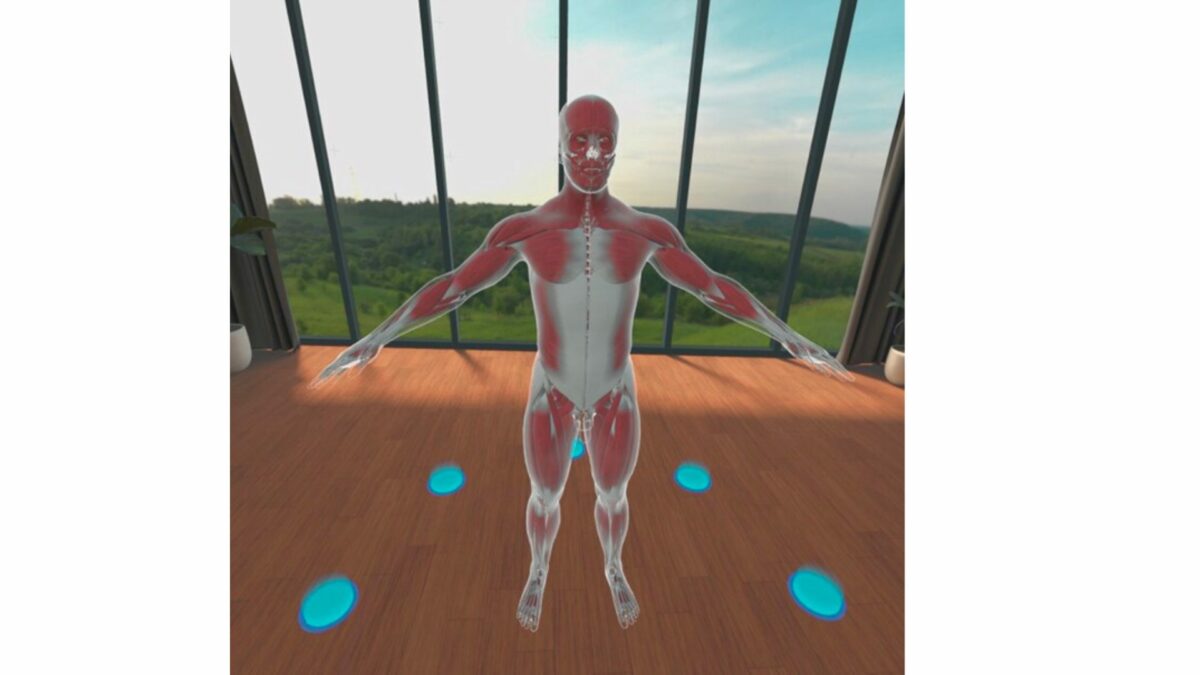

Virtual and extended reality specialist and co-founder of Austria based company XRConsole Markus Karlseder was a guest at the podcast TALKING HEADS of Business Upper Austria. Talking to project manager and VReduMED member Thomas Wolfinger of the MedTech-Cluster, the two talked about various aspects of VR in healthcare.
“Coming from the gaming industry, most VR apps are based on a gaming engine where there are two main players on the market right now. What we [XRConsole] are doing is to use this technology in the training and education sector, for example work safety, care education as we are talking about the healthcare sector, but also for emergency forces and things that are more difficult to teach when limited to reality.” says Karlseder. VR can be put to good use, for example where there is limited time available or if there are resources that are hard to get into place (like a digital twin of a machine which is standing kilometers away). With VR, safe learning environments can be set up.

XRC Anatomy Trainer – XRConsole
In this field, XRConsole sees itself as an enabler of the learning transformation of existing curricula. Karlseder says “We are not the domain experts, or the content experts. Meaning, when we get into play, there already is some kind of educational concept or training existing. […] We are trying to understand the challenges of respective training or operation. Working together with the domain experts, competent persons and trainers we take a deep look to be able to integrate VR into an existing curriculum and see how such applications could look like and where this can be used.”. According to Karlseder, it is crucial to have a critical view as it should be the case with every assisting technology, and question whether VR has a benefit and if the use of the technology in the given case makes the training better. Because if it doesn’t, it is quite a waste of time that XRConsole wants to save its customers. The goal is to have VR technology enrich and improve the existing curricula.
XRConsole already is experienced in the field of care education and has developed applications, some of which are already used in care education. Those are for example an anatomy trainer where (health)care students can learn anatomic structures in VR being able to learn in an interactive and gamified environment. This training application is developed offside the standard medical anatomy trainers and focuses on the needs of care students. Moreover, XRConsole also developed training for detecting fall risks in a home care setting and training for standard operating procedures like the preparation of an intubation set. Those applications are represented in the VReduMED Good Practice Examples portfolio.

XRC Anatomy Trainer – XRConsole
In September 2024 another interesting EU project in the field of VR started called XR2RESILIENCE with XRConsole as one of the project partners. Karlseder explains that the project focusses on the question of where extended reality can be implemented into a resilience training for healthcare professionals, and which training modules can be developed and integrated into the daily routine to strengthen the resilience of care staff. These findings will be underpinned by a randomized clinical trial including over 1000 nurses and healthcare professionals, testing how this training is affecting them.